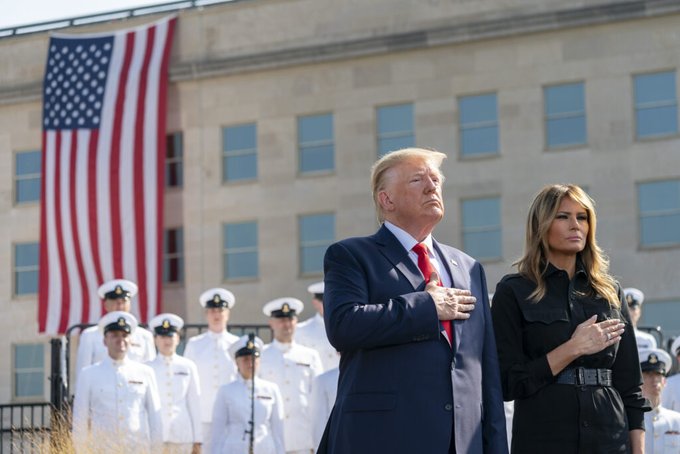Sen. Carter attributes Trump’s coronavirus diagnosis to reckless behavior
@BryanRenbaum
Sen. Jill Carter (D-Baltimore City) said Monday that President Donald Trump’s coronavirus diagnosis is the direct result of reckless behavior such as not wearing a mask and disregarding other recommended safety guidelines.
“He has been a poor role model for the country in not wearing a mask, holding mask-less rallies, and spreading the virus to staff. Even worse, he’s ultimately responsible, as a purveyor of misinformation and non-prevention, for the mass spread throughout the country and 204,000 deaths. You could call it irony, but arrogance and apathy put him in the position he is in,” Carter told MarylandReporter.com.
Carter added: “I don’t think the diagnosis will affect the election unless he becomes incapacitated beyond a couple of weeks or dies. That said, I wish him a speedy recovery.”
Del. Brian Chisholm (R-Anne Arundel) said it is not a given that wearing a mask would have protected the president from contracting the virus.
“There’s no proof that he got it because he wasn’t wearing a mask at certain point. There’s plenty of people who wear a mask constantly and got it. And if we are to believe what they say-the masks are designed to keep you from giving it to somebody else-not to prevent you from getting it.”
Chisholm added: “The mask doesn’t necessarily prevent you from getting it. The mask is supposed to help you from spreading it.”
Chisholm, like Carter, said he too believes it is unlikely that the diagnosis will affect the outcome of the election.
“I don’t know if there’s really anybody that is still trying to make up their mind…I think that everybody has already made up who they are going to vote for. And I think that he (Trump) is going to come out of this healthy and strong. And maybe he gets a boost from his base from that. But I don’t know if it has a huge effect on that other than maybe being a positive for him.”
Richard Vatz, a professor of political persuasion at Towson University, said it is difficult to speculate how Trump’s diagnosis might affect the outcome of the election.
“One cannot predict with much confidence, but generally all events fall short of creating much cognitive dissonance for intensive proponents or intensive opponents. It is possible that some percentage of undecideds may perceive some mellowing, and if that occurs it could be marginally advantageous for the president.”
Early Friday morning the president tweeted that he and first lady Melania Trump had tested positive for COVID-19. The president has since spent three nights at Walter Reed National Medical Center in Bethesda, Md. where he is said to be working from the hospital’s presidential suite. The president has been treated with steroids and is said to be responding favorably to the treatment.
Trump was briefly seen on Sunday evening riding down Rockville Pike in a black SUV accompanied by two Service Service agents who were wearing personal protective equipment. Trump was wearing a mask. He waved to supporters who had gathered along the highway to show their support. Prior to the brief excursion, Trump gave an update on his condition via a video on Twitter.
Trump has faced harsh criticism for downplaying the importance of wearing masks and for sometimes contradicting public health officials. Less than a month remains before the Nov 3. presidential election. Trump’s Democratic opponent, former vice president Joe Biden, routinely wears a mask and has repeatedly tested negative for COVID. Biden’s lead over Trump has grown substantially since last week’s debate and the news of the president’s diagnosis.
White House officials that have tested positive for COVID include senior counselor Hope Hicks and press secretary Kayleigh McEnany.
Update: Monday evening: President Trump has left Walter Reed National Medical Center and has returned to the White House.

MarylandReporter.com is a daily news website produced by journalists committed to making state government as open, transparent, accountable and responsive as possible – in deed, not just in promise. We believe the people who pay for this government are entitled to have their money spent in an efficient and effective way, and that they are entitled to keep as much of their hard-earned dollars as they possibly can.

